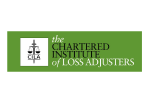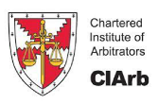A Major and Complex Loss Perspective
Irish business and the Irish economy is widely recognised as having strong resilient SME and industrial sectors. Very many businesses within these sectors have survived the worst effects of the recent pandemic years. The subsequent recovery period has thankfully resulted in increased economic activity. A rapid increase in economic activity will very often precipitate the occurrence of accidental fires and similar catastrophic losses, which has been the case during the last 18 months, within these sectors.
During this period, we have been privileged to advocate for many of these SME and industrial policyholders nationwide in conjunction with their brokers. This has ranged from food producers, such as yoghurt manufacturers, construction industry suppliers such as glazing and window manufacturers, kitchen manufacturers, globally branded portable tool producers as well as a very many hospitality and consumer facing retail businesses. Our origins in loss adjusting, with both experience and expertise developed over many years, has contributed to coordinated successful business recovery for all of the policyholders that we have represented.
A New Reality
American author Elizabeth Edwards has described resilience as “.. accepting your new reality, even if it’s less good than the one you had before.” Immediate acceptance and the capacity of any commercial policyholder to adapt to significant change is important. However, the process of successful recovery and return to operations following a catastrophic event, such as a fire, needs to be managed in a specialised way. The initial post loss period has to be navigated by the policyholder both from a commercial recovery perspective, but also in relation to their insurance policy response. Timely and effective policy response is critical to supporting business decisions that will relaunch the business on the optimum critical path(s) to recovery.
It goes without saying that all brokers know the critical and essential support that both property and business interruption insurances provide in the event of a loss, however being insured and /or the adequacy of same, in and of itself, is not a guarantee of business recovery. There are many competing variables at play in the immediate aftermath of any significant loss. The contact between the policyholder and the broker will happen almost immediately. It is essential that the initial post loss period is managed, and that optimum policy response is coordinated, to ensure a policyholder’s business recovery. Specialist claim expertise and advocacy to ensure same, in our experience, is key to the successful recovery of any insured resilient business.
Complex Challenges
Navigating the insurance response in the aftermath of any catastrophic loss can be daunting and particularly complex for any commercial policyholder. There are the obvious stakeholders and relationships involved i.e., broker, insurers, loss adjusters and policyholder advisors but there are potentially very many others that need to be managed e.g., customers, suppliers, landlords, tenants, local authorities, regulatory authorities, forensic engineers, construction engineers/architects, accountants, solicitors, restoration contractors, building contractors, re-insurers and third-party insurers, to highlight but a few. Stakeholder awareness and understanding of the various roles, responsibilities, primary interests and obligations is key to relationship management, communications and navigating the claim process.
In the immediate aftermath of a major loss the initial necessary investigation period undertaken on
behalf of insurers can be extensive and potentially overwhelming for some policyholders. In the event of a fire, for instance, this will involve insurer representative loss adjusters and forensic engineers who will undertake extensive comprehensive enquiries. These enquiries will extend to cause, warranty & condition compliance, subrogation & third-party recovery. Depending on the circumstances these enquiries may be undertaken in a situation where insurers rights are reserved pending conclusion. Policy cover will not be determined until all preliminary enquiries are concluded. Commercial policyholders need advice, support, and specialist independent guidance during this critical phase.
Elements of Recovery
Policy cover determination and confirmation is essential to ensure interim settlement funding that can support the business. Notwithstanding, the processes and timelines to achieve same will vary in every case. The approach of insurers and their adjusters can vary greatly. Relationship and communications management is vital to help all stakeholders through the process. Policyholders need to quickly understand the extent to which policy cover can or will apply, the adequacy of their sums insured, applicable policy limits, deductibles, maximum indemnity periods and how all these elements will affect their recovery.
Loss valuation and validation is the fundamental element at every stage of both the claim and business recovery process. This ranges from initial reserving through to interim funding and ultimate settlement. Property loss valuation involving Buildings, machinery, contents, fixtures, fittings and stock can be informed by many factors such as the extent of damage, adequacy of policy cover, regulatory requirements, designation, obsolescence, salvage, lead times and supply chain, amongst others. Business Interruption loss valuation will be informed by available and maximum indemnity periods, insured amounts, additional covers, adequacy of cover, availability and cost of mitigation, increased costs, customer retention, outsourcing solutions, temporary operations, cost savings and many other variables that are very fluid and uncertain in the aftermath of a catastrophic event.
Strategic Solutions
Early intervention in terms of planning and coordination is essential following a catastrophic loss. The appropriate specialist support team can provide a coordinated customer centric approach aligned with the required protocol to progress the claim.
Post loss business continuity planning and critical path analysis is essential. Many businesses will have business continuity plans already in place pre loss. Some businesses will have tested their plans or carried out some form of scenario analysis. In our experience however, without exception, no business will be adequately prepared for the reality of a catastrophic loss, such as fire, when it occurs. A specific type of emergency contingency planning and analysis is required post loss. The first imperative is to mitigate loss at all available opportunities and then to pivot to a position where real recovery options can be explored. All this must happen quickly with decisions being made in real time.
Plan B
“Plan B” needs to be formulated as soon as possible with all options identified so that any recovery strategy devised has built in agility. Plans C, D, E and beyond also need to be in scope depending on the fluidity of the situation post loss. The business must make the best decisions for the business in any given situation and then look to the policy to support same. The appropriate expertise, experience and advice will ensure optimum policy response.
Often the business has to plan and make initial decisions in the absence of certainty as to policy cover or response. Insurers and their adjusters can be constrained by the necessary protocols and investigation processes required during the initial period post loss and throughout. While every policyholder has a duty to mitigate loss, the necessary advice and coordination is required to ensure that a policyholder doesn’t inadvertently prejudice their position in any way. Appropriate specialist advice in any given set of circumstances will avoid any misstep while ensuring that the ultimate mechanics of settlement along with the necessary interim settlement funding can support the devised business recovery strategy.
Stakeholder awareness and relationship management is fundamental to successful claim resolution. The relationships between insurers, brokers, adjusters and policyholder advisors are invariably long term, extending above and beyond the specific challenges of any individual claim. The specialist coordinated customer centric solution will both validate and protect these relationships while also ensuring claim resolution aligned with policyholder business recovery.
Stephen joined the OMC Claims team of specialists following an extensive career in loss adjusting as Director of Major and Complex loss. OMC Claims and their team of specialists are always available to respond to any broker or their clients in the event of any major or complex loss. They are also available for any value at risk or scenario planning advice.
*This Article originally featured in Irish Broker Magazine, February 2023







